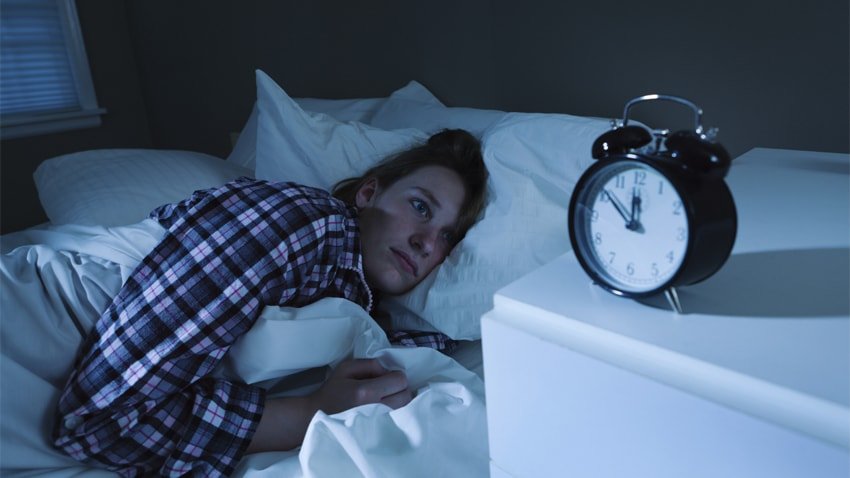
In today’s fast-paced, hyper-connected world, sleep has become a luxury many of us struggle to afford. The rise of digital technology, while offering countless conveniences, has also given rise to a growing epidemic: insomnia. The constant barrage of notifications, late-night screen time, and the pressures of staying connected 24/7 are affecting our sleep patterns, leading to sleep deprivation and a range of related health problems. In this article, we will explore how digital technology is contributing to insomnia and provide practical strategies to improve sleep in this tech-driven age.
The Impact of Technology on Sleep
Technology is omnipresent in modern life, with smartphones, tablets, laptops, and televisions all playing significant roles in how we spend our time. However, this digital age comes with unintended consequences, particularly when it comes to sleep. Several factors contribute to insomnia in a tech-driven world:
1. Blue Light Exposure
One of the most significant culprits of tech-related insomnia disorder is blue light. The screens of smartphones, tablets, and computers emit blue light, which can interfere with the production of melatonin, the hormone responsible for regulating sleep. Studies have shown that prolonged exposure to blue light in the evening can delay the onset of sleep and reduce sleep quality. This disruption is particularly concerning given how many people use their devices late into the night.
2. Mental Stimulation
Another factor contributing to insomnia is the mental stimulation associated with digital devices. Whether it’s scrolling through social media, checking emails, or watching an exciting episode of your favorite show, all of these activities engage the brain and make it harder to wind down. The information overload and constant stream of stimuli from screens keep the mind active, making it difficult to relax and fall asleep.
3. Sleep Disruptions from Notifications
Many people sleep with their phones nearby, and the constant barrage of notifications—whether from texts, emails, or social media—can disturb sleep. These interruptions can break the natural sleep cycle and prevent individuals from achieving restorative deep sleep.
4. Stress and Anxiety
The digital world can also contribute to heightened stress and anxiety, which are major contributors to insomnia. The pressure to stay connected, the fear of missing out (FOMO), and the exposure to negative news and social media comparisons can increase stress levels, making it harder to unwind and fall asleep.
The Health Consequences of Sleep Deprivation
Chronic insomnia can have serious consequences on both mental and physical health. Lack of sleep is linked to numerous health issues, including:
Sleep is crucial for memory consolidation, learning, and problem-solving. Insufficient sleep can lead to difficulties with concentration, poor decision-making, and slower reaction times.
Sleep deprivation can increase the risk of depression, anxiety, and irritability. The lack of restorative sleep can lead to heightened emotional sensitivity and decreased ability to cope with stress.
Sleep is essential for maintaining a strong immune system. Chronic sleep deprivation can make individuals more susceptible to infections and illnesses.
Long-term sleep deprivation is associated with a higher risk of developing conditions like obesity, diabetes, heart disease, and hypertension.
How to Sleep Better in a Tech-Driven World
While technology presents many challenges to sleep, there are strategies we can implement to mitigate its effects and improve sleep quality.
1. Limit Screen Time Before Bed
One of the most effective ways to combat the effects of blue light and mental stimulation is to reduce screen time in the hour or two before bed. Try setting a “digital curfew” and avoid using your phone, tablet, or computer during this time. Instead, engage in relaxing activities like reading a book, taking a warm bath, or practicing meditation.
If you must use devices at night, consider using apps or features that reduce blue light emission. Many smartphones and computers have built-in “night mode” settings that adjust the screen’s color temperature, reducing blue light exposure in the evening.
2. Create a Relaxing Bedtime Routine
Establishing a calming bedtime routine is essential for signaling to your body that it’s time to wind down. This routine could include activities such as:
Listening to soothing music or white noise
Practicing deep breathing exercises or progressive muscle relaxation
Engaging in gentle stretching or yoga
Drinking a cup of herbal tea (such as chamomile) that promotes relaxation
By consistently following the same steps before bed, you can train your body to associate these activities with sleep.
3. Limit Exposure to Stress and Negative News
The digital world is often a source of stress, whether from work emails, social media updates, or consuming negative news. To improve sleep, it’s important to limit exposure to stress-inducing content, especially before bed. Try to avoid checking work emails or engaging in heavy conversations on social media in the evening. Instead, focus on more positive and relaxing activities, such as reading or spending time with loved ones.
4. Optimize Your Sleep Environment
Your sleep environment plays a significant role in the quality of your rest. To create an environment conducive to sleep, consider the following:
Keep your bedroom cool, quiet, and dark: Light and noise can disrupt sleep, so invest in blackout curtains and use earplugs or a white noise machine if necessary.
Choose a comfortable mattress and pillows: A comfortable bed is essential for quality sleep. Make sure your mattress and pillows provide the necessary support for restful sleep.
Keep your bedroom device-free: To prevent distractions, avoid keeping electronic devices like phones, tablets, and TVs in your bedroom. The bedroom should be a sanctuary for sleep, free from the pressures of digital distractions.
5. Practice Mindfulness and Stress Management
Mindfulness practices, such as meditation, journaling, and yoga, can help calm the mind and prepare the body for sleep. Incorporating these practices into your daily routine can help reduce the stress and anxiety that often contribute to insomnia symptoms.
Conclusion
In a world dominated by technology, sleep has become an increasingly scarce commodity. The constant exposure to screens, notifications, and mental stimulation from digital devices has made it more challenging for people to get the restful sleep they need. However, by being mindful of our tech usage, creating a relaxing bedtime routine, and optimizing our sleep environment, we can take control of our sleep habits and improve our overall well-being. In the end, a good night’s sleep may just be one of the most important digital detoxes we can practice in today’s tech-driven world.




